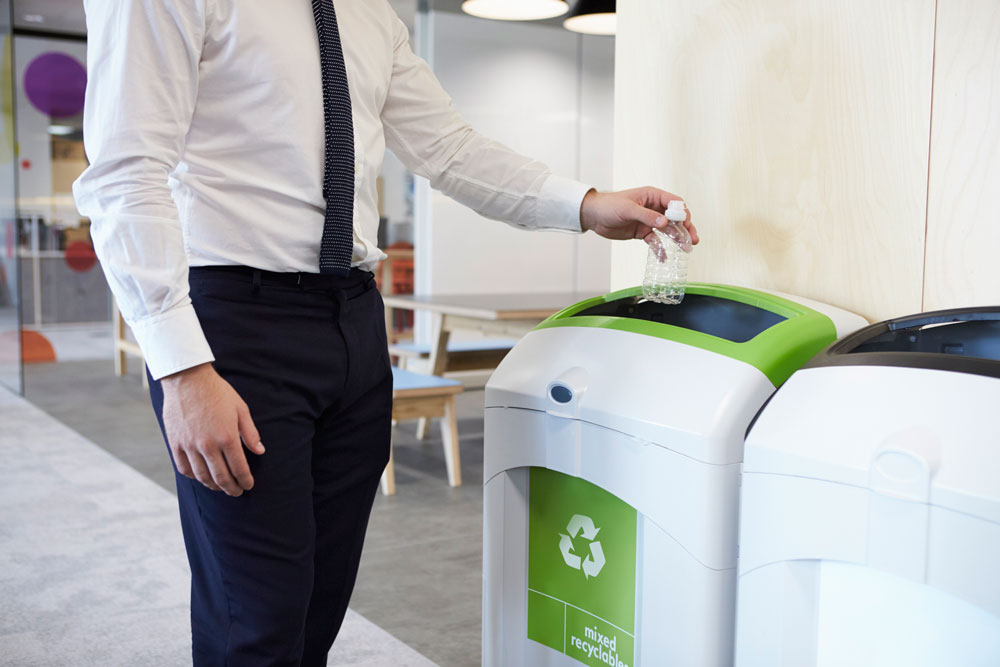
New waste regulations for businesses: A guide to upcoming changes
Published Feb 17, 2025
Starting on 31 March 2025, businesses in England, specifically those with 10 or more full-time equivalent (FTE) employees, will be required to follow new waste separation guidelines as part of a national drive to improve recycling and reduce landfill waste.
What are the new requirements?
The key change under the new regulations is that businesses must separate their waste into three distinct streams: dry recyclables, food waste, and residual (black bin) waste. This applies to businesses and workplaces of a certain size, starting in 2025. For micro-firms (those with fewer than 10 employees), this will be delayed until 31 March 2027. The main goal of these changes is to improve recycling rates, reduce waste sent to landfills, and help businesses reduce their environmental impact:
Dry recyclable materials: This includes common recyclable materials such as paper, cardboard, plastics, metals, and glass. These materials should be segregated from general waste and disposed of in dedicated recycling bins. The aim is to ensure that such materials are properly sorted at the source to improve their recycling rate, which is crucial for reducing the environmental footprint.
Food waste: Businesses that generate food waste, whether from restaurants, cafes, office kitchens, or manufacturing processes, must now separate it into a dedicated food waste bin. This requirement helps to divert organic waste away from landfills, reducing methane emissions and promoting composting or energy recovery. It's particularly relevant for food-related businesses in the South West, which has a vibrant hospitality and agricultural industry.
Residual waste (black bin waste): Any non-recyclable materials, such as heavily contaminated packaging or items that cannot be recycled, should be placed in the residual waste bin. The aim is to reduce the volume of waste that ends up in landfill by making sure recyclable and organic materials are properly diverted.
Preparing for the changes
For businesses, preparation is key. Here are a few steps to ensure compliance with the new waste regulations:
Conduct a waste audit: Businesses should assess their current waste generation patterns and identify areas where waste can be reduced, reused, or recycled. This audit will also help determine the amount of space and bins required for each waste stream.
Upgrade waste management systems: Depending on the size and type of the business, waste management systems may need to be updated to handle the new sorting requirements. This could involve procuring new bins, ensuring staff are trained on the new procedures, and arranging for separate collections from waste contractors.
Engage with waste collectors: It is important to work with local waste collectors to ensure that separate collections for food, recyclables, and residual waste are in place. Businesses should discuss schedules and costs to ensure smooth implementation.
Conclusion
By March 2025, businesses must be prepared to comply with the new waste regulations that focus on separating dry recyclables, food waste, and residual waste. While the 2027 deadline offers some flexibility for smaller firms, all businesses must act sooner to implement changes that will help reduce waste, improve recycling rates, and contribute to a more sustainable future. Ensuring compliance with these regulations is not only beneficial for the environment but can also enhance a business’s reputation, boost efficiency, and reduce waste disposal costs in the long run.